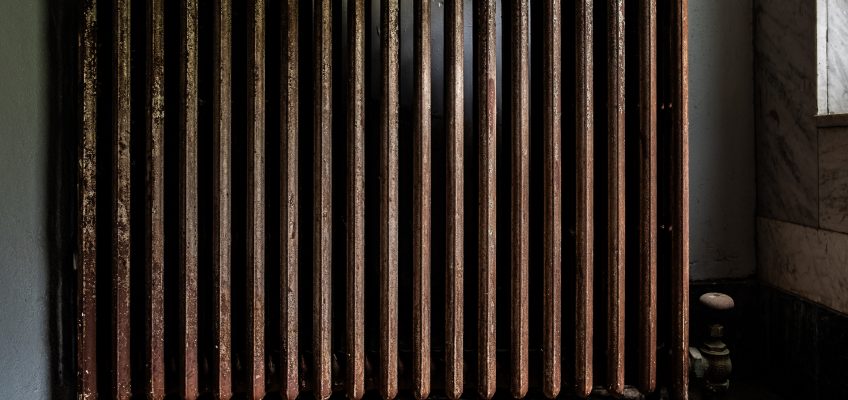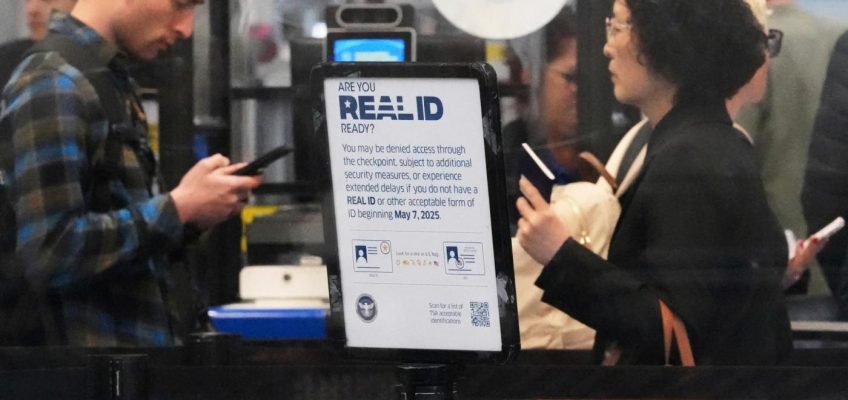By CHRISTOPHER RUGABER, AP Economics Writer
WASHINGTON (AP) — From corporate executives to Wall Street analysts to Federal Reserve officials, references to the “K-shaped economy” are rapidly proliferating.
So what does it mean? Simply put, the upper part of the K refers to higher-income Americans seeing their incomes and wealth rise while the bottom part points to lower-income households struggling with weaker income gains and steep prices.
A big reason the term is popping up so often is that it helps explain an unusually muddy and convoluted period for the U.S. economy. Growth appears solid, yet hiring is sluggish and the unemployment rate has ticked up. Overall consumer spending is still rising, but Americans are less confident. AI-related data center construction is soaring while factories are laying off workers and home sales are weak. And the stock market still hovers near record highs even as wage growth is slowing.
It also captures ongoing concerns around affordability, which is much more of a concern for middle and lower-income households. Persistent inflation has received renewed political attention after voter anger over costly rents, groceries, and imported goods helped Democrats win several high-profile elections last month.
“Those at the bottom are living with the cumulative impacts of price inflation,” said Peter Atwater, an economics professor at William & Mary in Virginia. “At the same time, those at the top are benefiting from the cumulative impact of asset inflation.”
Here are some things to know about the K-shaped economy:
Not an L, U or V
Atwater actually popularized the label “K-shaped economy” during the pandemic after seeing it crop up on social media. Other economists were discussing different letters to describe how the COVID recession in 2020 could play out: Would it be a V-shaped recovery, meaning a sharp decline and then rapid bounce-back? Or would it be U-shaped, meaning a more gradual rebound? Or, worse, L-shaped: A recession followed by extended stagnation.
“There was sort of this land-grab for letters,” Atwater said. “To me the letter that made the most sense was K.”
Back then, it captured the differing fortunes between white-collar professionals still employed and working at home while stock prices rose, even as massive layoffs at factories, restaurants, and entertainment venues pushed unemployment to nearly 15%.
Inequality persists
Inequality was somewhat reversed in the aftermath of the pandemic, when businesses offered large raises for blue collar workers as the economy reopened and demand surged. Many companies — restaurants, hotels, entertainment venues — were caught short-staffed and sought to rapidly increase hiring. Lower-income workers saw larger pay gains than higher-paid ones.
In 2023 and 2024, inflation-adjusted wages for the bottom quarter of workers rose at a yearly rate of 3.9%, outpacing the 3.1% gains for the top quarter, according to research by the Federal Reserve Bank of Minneapolis.
“We had that kind of two-year period where the bottom was catching up and that talk of the K-shape went away,” Dario Perkins, an economist at TSLombard, said. “And since then, the economy’s cooled down again,” he added, bringing back K-shape references.
This year, however, inflation-adjusted wage growth has weakened as hiring has fallen, with the drop more pronounced for lower-income Americans. Their wage growth has plunged to an annual rate of just 1.5%, the Minneapolis Fed found, below that of the highest earning quarter of workers at 2.4%.
Slower income growth has left many lower-income workers less able to spend. Based on data from its credit card and debit card customers, Bank of America found that spending among higher-income households rose 2.7% in October compared with a year ago, while lower-income groups lagged at just 0.7%.
And a Federal Reserve Bank of Boston study in August found that consumer spending in recent years has been driven by richer households, while lower- and middle-income Americans have piled up more credit card debt even as they’ve spent less.
Businesses take note
Corporate executives are paying attention and in some cases explicitly adjusting their businesses to account for it. They are seeking ways to sell more high-priced items to the wealthy while also reducing package sizes and taking other steps to target struggling consumers.
Henrique Braun, chief operating officer at Coca-Cola, for example, said in late October that the company is pursuing both “affordability” and “premiumization.” It is generating more of its earnings from higher-end products such as its Smartwater and Fairlife filtered milk brands, while at the same time introducing mini cans for those looking to spend less.
“We continue to see divergency in spending between the income groups,” Braun said in a conference call with analysts last month. “The pressure on middle and low-end income consumers is still there.”
Sales of first- and business-class tickets have been fueling revenue and profit for Delta Air Lines, its CEO Ed Bastian said in October, while lower-end consumers have been “clearly struggling.”
And Best Buy CEO Corie Barry on Tuesday said that the top 40% of all U.S. consumers are driving two-thirds of all consumption.
The remaining 60% are focused on getting the best deals and are more dependent on a healthy job market, she said.
“One of the things we’re watching closely is how does employment continue to evolve for particularly that cohort of people who are living more paycheck to paycheck,” she added.
Thanksgiving debt regrets: How to recover if you overspend
What is GivingTuesday? How to donate on the annual day of charitable giving
Starbucks to pay about $35M to NYC workers to settle claims it violated labor law
Bitcoin tumbles below $85,000 in crypto rout
When formal systems stop working, neighbors turn to each other in what many call ‘mutual aid’
AI plays a role
The massive investment in data centers and computing power has also contributed to the K-shaped economy, by lifting share prices for the so-called “Magnificent 7” companies competing to build out AI Infrastructure. Yet so far it’s not creating many jobs or lifting incomes for those who don’t own stocks.
“What we see at the very top is an economy that is sort of self-contained … between AI, the stock market, the experiences of the wealthy,” Atwater said. “And it’s largely contained. It doesn’t flow through to the bottom.”
Driven by big gains for companies like Google, Amazon, Nvidia, and Microsoft, the stock market has risen nearly 15% this year. But the wealthiest 10% of Americans own roughly 87% of the stock market, according to Federal Reserve data. The poorest 50% own just 1.1%.
K-shape comes with concerns
Many economists worry that an economy propelled mostly by the wealthiest isn’t sustainable. Perkins notes that should layoffs worsen and unemployment rise, middle- and lower-income Americans could pull back sharply on spending. Revenue for companies like Apple and Amazon would fall. Advertising revenue, which is fueling companies such as Google and Facebook parent Meta, typically plunges in downturns.
Such a cycle could even force the “Mag 7” to pull back on their AI investments and send the economy into recession, he said.
“Then you’re talking about the bottom of the K essentially pulling down the top,” he added.
Perkins, however, sees a different path as more likely: Many U.S. households will receive larger tax refunds early next year under the Trump administration’s budget law. And Trump will likely appoint a new Federal Reserve chair by next May who will be more inclined to cut interest rates. Lower borrowing costs could accelerate growth and wages, though it could also worsen inflation.
AP Retail Writer Anne D’Innocenzio in New York contributed to this report.




